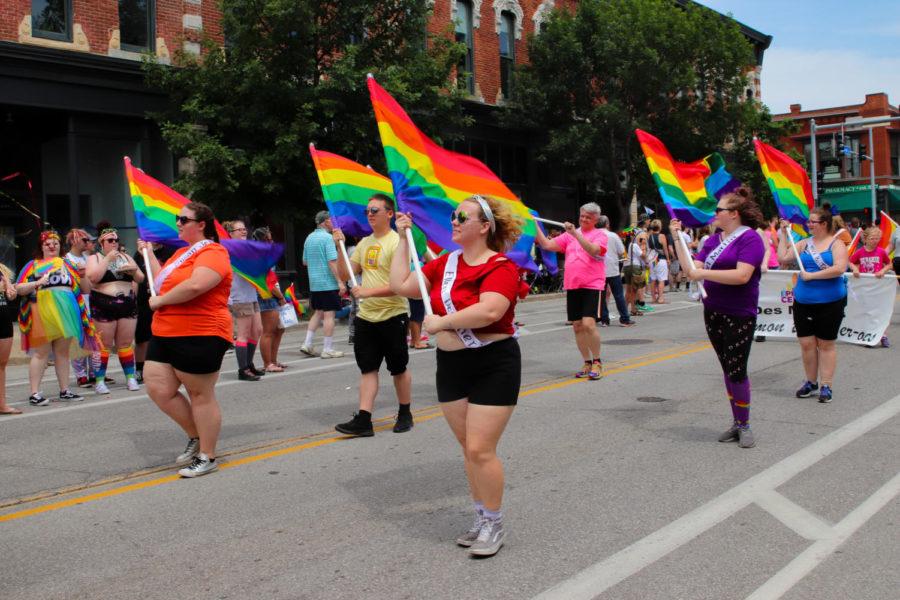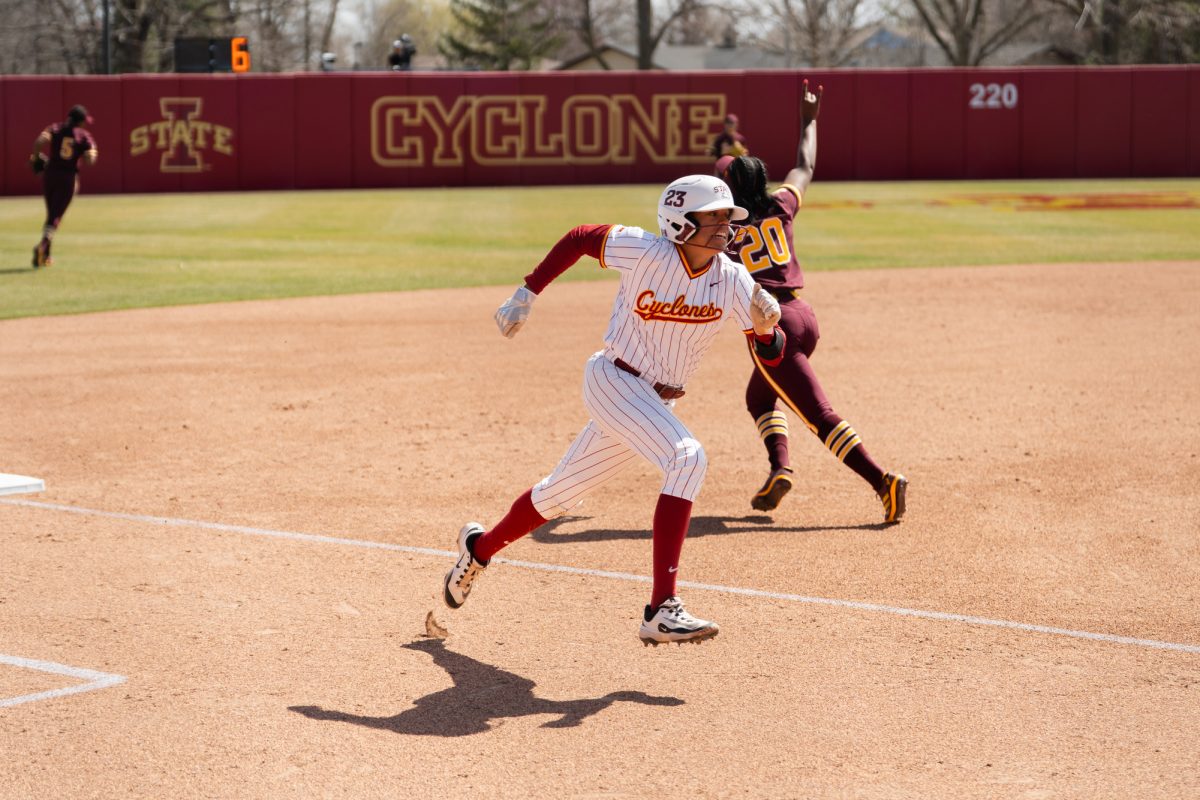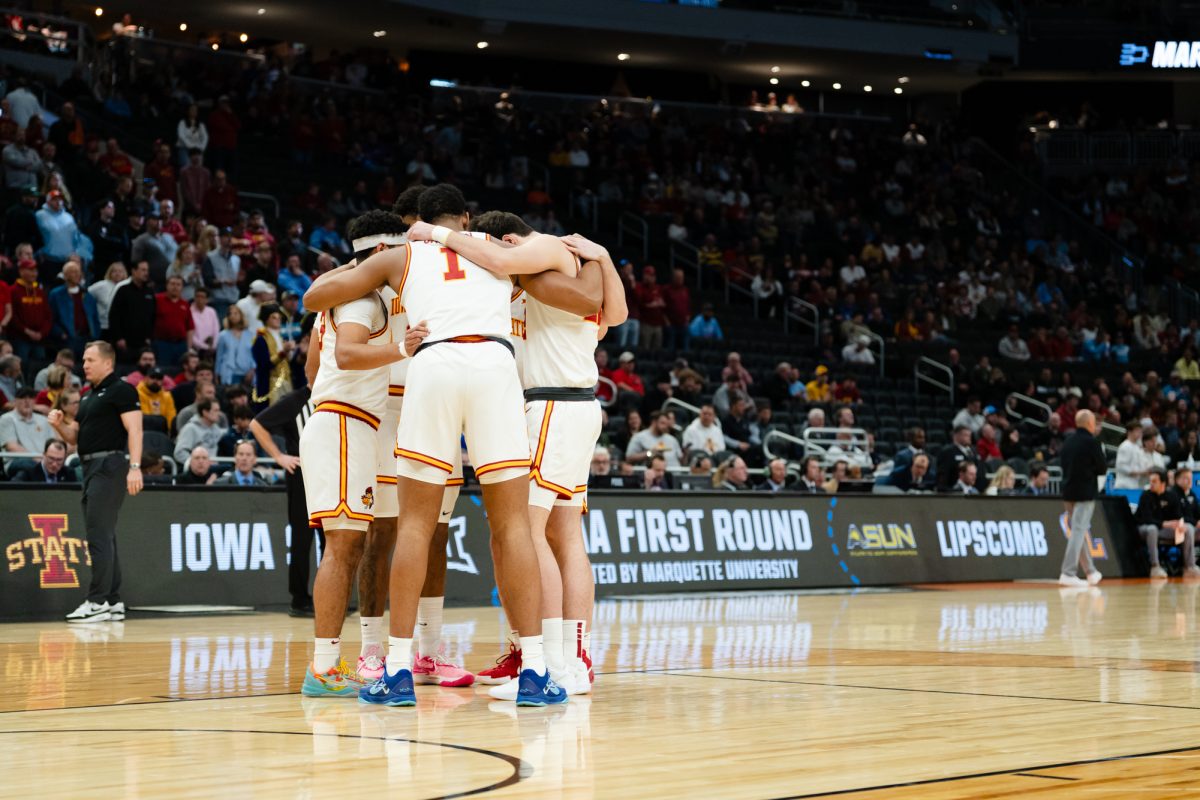Letter: Unintentional harm is still real
Parade participants perform a flag routine with pride flags during the Des Moines Pride Parade on June 9. The parade started at the Iowa Capitol Building and traveled down Grand Avenue in the East Village.
June 20, 2019
Intentionally causing harm is not the only way to hurt someone. Without malice or intent, we can still do great damage.
However, John Rochford’s response to “How to be a Good Ally this Pride Month (and every other month)” suggests that “as long as people are not actively intending harm or physically harming someone, leave them alone.”
I’m on board with Mr. Rochford’s idea that ignorance of an issue doesn’t make someone morally inferior. However, when we hurt others unintentionally, that harm is still real.
I have one quick example. Coming from a Jewish background, it bothers me when others use “jew” or “kike” as verbs for behaving cheaply or less than honorably in a negotiation. But, I’ve come to realize that many folks grew up using these words not actually intending to connect them to Jews or to the long and bloody history of scapegoating Jews. These have included wonderful friends who treat me with great respect so I know their statements carry no malice. Yet the words do cause some measure of harm.
Mr. Rochford’s writing suggests that we should ignore such statements, which would unfortunately let our friends continue to cause harm without knowing it. Perhaps, as his letter states, this would be the truly “liberal thing to do.” But would it be the right thing to do? Imagine how much harm we can cause if we have no idea we’re causing it.
So, when confronted with unintentionally hurtful statements, I’ve tried not to ignore them. Instead, I’ve opened dialogue with my friends about why the language troubles me — not because I’m some delicate flower, but because reducing the amount of harm we cause seems better than increasing it. Am I wrong to think that we should help each other treat people the way they’d like to be treated? That we should listen when others suggest ways in which we could reduce the amount of harm we cause? I find that much more appealing than continuing to hurt one another unintentionally.







